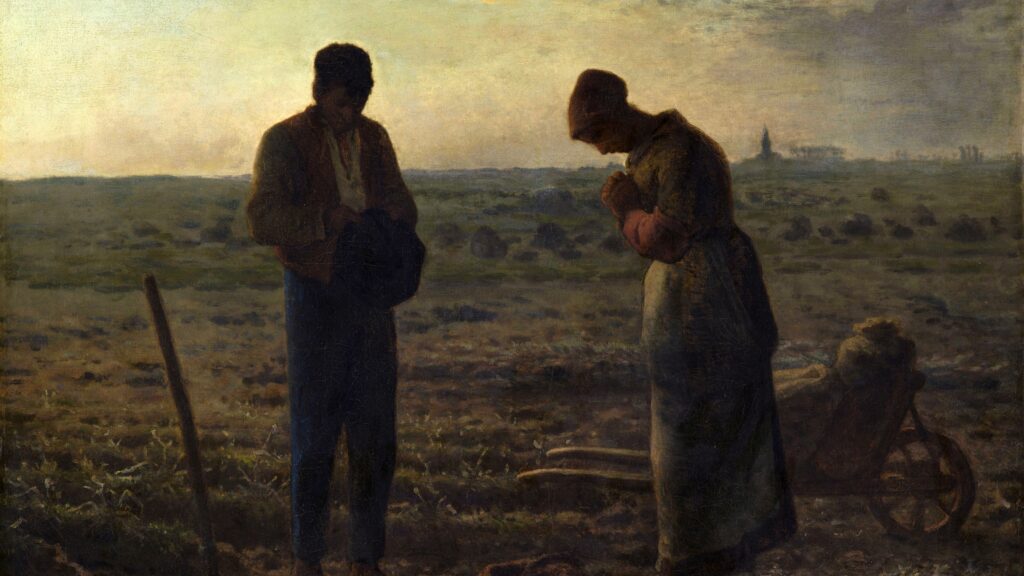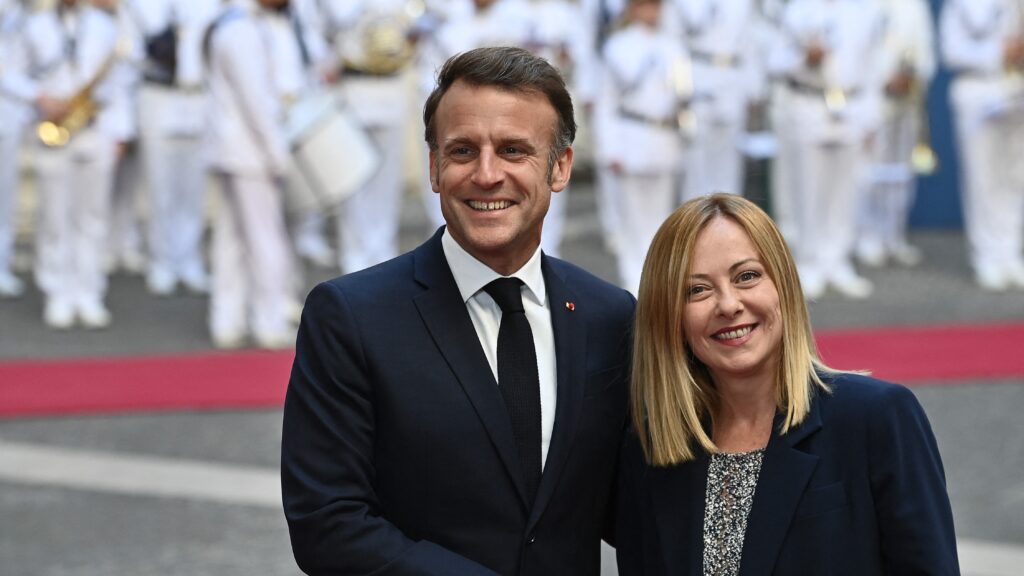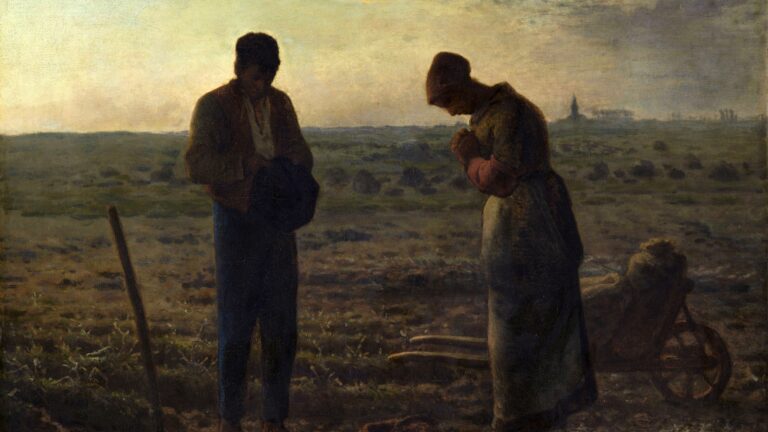The Batthyány Lajos Foundation was established in 1991 by then Prime Minister József Antall, with the aim of promoting a civil society which is committed to the Hungarian nation, our Christian values, and democratic, representative governance. In accordance with these aims, the Foundation established a PhD scholarship programme in 2020 for students who broadly share its mission. The scholarship has been a success, with more than forty PhD students enrolling since its inception. As part of their scholarship, the students were asked to write down in ten to fifteen points what it meant for them to be a conservative in the twenty-first century. Their answers were then amalgamated into the text below, which we now share with our readers as a kind of manifesto for conservative values that we can perhaps all commit to in these turbulent times.
Respect for Human Dignity
- 1. We affirm the inviolability of human dignity. Conservative minds of the twenty-first century are facing the task of protecting not only specific manifestations of life and traditions but everything that we call human. Human dignity is in need of defence in an age when the integrity of the individual, genders, and natural communities is being called into question. Conservatism must remain sensitive to issues of human dignity, especially in light of various contemporary trends in progressive political thought, which question man as an imperfect yet lovable being and a creator of communities, seeking to transform human existence more profoundly than ever before. Therefore, conservatives must keep the right to life and the bioethical issues of modern medicine on the political agenda, and must stand up for the protection of human dignity. In all probability, the denial of human nature poses a threat far greater than we can fathom today. While contemporary philosophy deconstructs the notion of man, technology is being harnessed to change humanity itself. In the face of these trends, we must insist on maintaining the dignity of human existence, and on the persuasion that human nature cannot be transcended. The best that conservatives can do is serve as the vanguard of the forces struggling to defend the integrity of human life against radical body politics, transhumanism, and efforts to upset the balance of human ecology. All of these represent a threat grave enough for everyone to oppose, regardless of political conviction.
We believe that conservatives are responsible today, as they always have been, for preserving the complex and rich reality of human life, whether by caring for our cultural heritage or by safeguarding our natural communities, nature, or the plurality of the political world.
Thirteen Points of Twenty-first-century Conservatism
We are conservatives because …
1. We affirm the inviolability of human dignity;
2. We are committed to social continuity, and respect every country’s traditions and heritage;
3. We regard humankind as creatures building communities by their innate nature;
4. We affirm the family, understood as the union of man and woman, as the basic unit of society;
5. We believe that European civilization is nourished by its Judeo-Christian roots and that preserving these roots is our essential duty;
6. It is our duty to uphold the freedom of thought and the culture of debate;
7. We deem it incumbent upon us to prevent moral thought and technology from taking divergent paths in their evolution;
8. We want to enrich culture instead of appropriating it;
9. We denounce ideologies with universal, globalizing ambitions;
10. We seek to protect not just what is our own but nature as well, while recognizing that the protection of natural assets can never take precedence over the protection of human life;
11. We wish to safeguard the autonomy of representational systems and nation states;
12. We regard any political alternative
to conservatism as excessively radical;
13. We deem it of the utmost importance that the economy serve people’s needs instead of people serving the needs of the economy.
Social Continuity
2. We are committed to social continuity, but what this means for us is an openness not just to the past but to the future as well. The confirmation of our identity amounts to the will to be receptive to the age-old values of our history and to become authentic representatives of European culture while preserving our own traditions. We aim to identify and adopt those cultural achievements that have aided Western civilization for thousands of years in assuming a proactive role in shaping global processes. Because this identity bolsters us from the inside, it cannot be construed as a means of negating others but only of affirming our own heritage.
What we believe in is not power but the continuity of respect for authority and the importance of following good examples. Therefore, we respect the autonomy of the individual. At the same time, in the field of education we consider it vital that the criteria of ‘value-neutrality’ be overruled by the moral imperative of passing down our cultural values. As conservatives, we are also confident that the standards of public discourse cannot be improved, nor the unity of society ensured, without the proper education of citizens. In addition to value-oriented education, the family —the most intimate form of human community—is the chief repository of social continuity. Therefore, the protection of the traditional family model and the support of families are at the forefront of conservative policy.
We believe that Western civilization is capable of renewal through its own resources, without requiring any external insemination. Renewal hinges on a long- term awareness of responsibilities and a commitment to social continuity. We cannot create and achieve a positive impact unless we are familiar with the existing arsenal of forms. This is especially true for political creativity, which must be a manifestation, along with the capacity of thinking for the future, of conservatism.
The Protection of Natural Communities and the Basic Unit of Society
3-4. We regard humankind as creatures building communities by their innate nature; and we affirm the family, understood as the union of man and woman, as the basic unit of society. For the conservative mind, the supreme and ultimate authority lies beyond the self. What we want to attain is not the potentially limitless extension of our own individual world view without even enjoying the support of the community; instead, we bear in mind the interests of the community in the first place. For us, that which is normative is therefore legitimate, and nothing can be legitimate unless it is so in the eyes of the community. This is why the genuine conservative affirms the liberty of the individual but opposes the extreme forms of individualism, which reject the notion of humanity as being born to create communities. For us, conservatism stakes out the golden mean between the extremes of radical individualism and collectivism.
‘It is precisely this diversity that is being threatened by globalization’
We consider it a self-evident fact that women and men are entirely equal, if not identical, members of society. In social roles, individual decisions must be the key factors, while it is imperative to guarantee both sexes the opportunity to strike a balance between career and private life. We thus consider it of the utmost importance that women should not be forced to relinquish their career because they want to have children, and that men should be able to take part in parenting. Having said that, the biological needs of children cannot be ignored. For them, the proximity of the mother is indispensable for years after birth, as is the ability to grow up in a complete, well-functioning family.
In all areas of family, work, and public affairs, conservatism affirms the mandate of collective responsibility and the individual sense of vocation, aiming at preserving and upholding the ideal of self-reliance in the life of society. Social scientists of the twentieth century were far too oblivious to the elemental fact that human society itself constitutes a biological unit and possesses life functions just as ecosystems do. We need communities and an integral society that operates as the vehicle of culture and political order, unless we want to risk the void inevitably emerging in a demoralized medium and filled with disparate cultural norms. It is solely by defending our identity that we become able to enrich the values of universal human civilization, for no giving is conceivable without the giver owning the gift to be given in the first place.
Christian Culture
5. In our opinion, it is the destiny of conservatism to preserve the Judeo-Christian culture of Europe, which is in part directly founded on Christianity, and in part rooted in other cultural components filtered through, digested, transformed, and recreated by Christianity. Consequently, there can be no greater ambition for conservatism than to vest Christianity with a political form. Europe was made into what it is by Christianity, and can only be kept that way by it.
Like all religions, Christianity serves to provide our lives with an overarching framework, endowing our existence with meaning. In other words, it has ontological power. Scripture lends itself to the derivation of a clear-cut anthropology. Indeed, the principles of our moral thought are inferred from the Bible or, more broadly, from the traditional values of Judeo-Christian culture, although we admittedly interpret them through the very specific lens of classical Greco-Roman antiquity. The culture brought into existence by Christianity has assumed distinct historical forms and structures in Orthodoxy, Catholicism, and Protestantism. Our embeddedness in this culture is not a matter of choice. It is something we are born into, and its linguistic codes are always at work in the back of our minds. In this way, Christianity is the strongest pillar of Western civilization, followed by classical erudition and, thirdly, by the scientific achievements of the modern era.
We must assume responsibility for the development of the rapidly overpopulating parts of the world and for the improvement of their capacity to retain their populations within their borders. We do not think the world will be moved forward by the subjective right of peoples to free movement and settlement, and further their right to win citizenship and unconditional access to services accruing to that status. Help for the needy can be extended anywhere, preferably where they happen to live in the midst of their own cultural environment. This is at once a means of eschewing the chimera of the struggle between civilizations.
We cannot afford to support the relocation of communities to Europe, indirectly or directly, in the name of a utopistic, postmodern philosophy which seeks to homogenize societies, when these communities happen to be preparing, with dogmatic zeal, to dismantle our own civilization in the staunch belief that their religion and civilization are morally superior to our own, and do so by turning our own values, such as the freedom of speech, against us. Self-abnegation and the relativization of our values cannot be construed as the direct, unavoidable consequence of our Christian principles—hospitality, forgiveness, help for the needy—as if it were somehow a moral liability incumbent upon Christians. Rooted in Christianity, the fundamental democratic values of our civilization, whether embodied in our politics or social philosophy, must not be sacrificed on the altar of tolerance for other civilizations and their representatives. If we choose to go down that road, the boundless resignation of our true selves will be the inevitable end result. It follows that we must resist those schools of philosophy which seek to force the Christian world (incidentally condemned by them to demolition) to take that path, by cynically and intentionally misinterpreting Christian principles.
By the same token, we must protect persecuted Christians and the freedom of religion around the world, as long as the religion in question does not scheme to destroy other religions.
A number of modern ideologies have undertaken to offer a substitute for religion as a powerful tool for integrating society, but the past century proved these alternatives to be ultimately lacking in the requisite power. Therefore, if we want to preserve Europe as it is, we have no choice but to fall back upon the cultural roots of our civilization.
The Culture of Debate
6. It is our duty to uphold the freedom of thought and the culture of debate. It is a task given to us to cultivate the capacity for open debate and to defend the venues where social debates are conducted, because for us conservatism means an insistence on the ethos of open civic discourse. It is the insistence on the principle that those who wish to shape the destiny of the community must embrace our inheritance of cultural values. In the post-liberal condition of the twenty-first century, we feel that freedom and tolerance are no longer functioning as catch-phrases of liberalism. It thus becomes incumbent upon us conservatives to protect the freedom of thought and to maintain the openness of the political arena in the face of all manifestations of totalitarian thinking. In this way, conservatism for us also amounts to the demand for maintaining open debate, which is inseparable from tolerance. Yielding to the temptation of ostracization, cynicism, and conceited half-erudition is unacceptable for any conservative. The social contemplation and public dialogue of our age are defined by a dialectic rather than exclusivity, the latter being understood generally and also specifically as the exclusion of others from participating in the discourse.
The violent revision of cultural canons, the eradication of open debate, the ousting of authors and their entire oeuvres from collective memory, and their replacement by others without any legitimation by the community, are all attempts we regard as hostile to culture itself, and as such something that we must oppose in the firmest possible manner. In our view, a conservative cannot get lost in a monologue, or in the maze of sophistry. In debate, he must not only seek the best tactics for victory, or the most effective means of squashing his opponent, but should search for the path to a deeper understanding of the truth. And it is precisely this call for seeking the truth that demarcates the limits of our tolerance. We believe that tolerance is not an end in and of itself, and that we must never compromise on certain issues, unless we want to have our own voices stifled in various forums, and to have our fundamental cultural values remain defenceless for good. Our refusal to compromise does not amount to excluding the other side from the discourse. Instead, it simply means an act of moral courage, of standing up fearlessly for what we deem the cardinal issues of human life. Perhaps never before has such firmness been as badly needed as in our day and age. The moral and ethical debates currently conducted in the domain of Western culture are unsolvable, not just in the sense that they have proved never-ending in practice, but that they are theoretically, in principle, incapable of reaching a conclusive resolution. The socialist or liberal world view is built on entirely different premises than the Christian one, and we cannot choose among these premises on a purely rational basis. And if this is true, it obviates the need to maintain the need for compromise in the paramount political issues. In fact, it mandates us to fight for our chosen values, to vindicate our belief in the arena of political struggle.
‘It is precisely this diversity that is being threatened by globalization, which has declared war upon it in a campaign for a utopian community, seeking to melt all humanity into one great amalgam’
When it comes to tolerance of the alien and otherness, the conservative standpoint is to obey the dictates of rationalism and nothing else. In culture itself, this boils down to the ability to make a distinction between the concepts of ‘other’, ‘alien’, and ‘enemy’—in practice, to the fact that tolerance cannot apply to the barefaced enemies of Western civilization (such as radical Islamists). As conservatives, it is not our desire to defang political conflict at all cost. To put it differently, we do not want to lose the ability to distinguish between one of us and one of the enemy, between friend and foe, and consequently we will never equate tolerancewith self-abnegation. To be conservative means that we are arguing with while respecting one another. It means that we may view all ideas, both of our opponents and our own, with a measure of healthy scepticism, but that the necessity of debate itself is never for a moment in doubt.
We hold all the classic liberties—the freedom of religion, opinion, thought, expression, and writing—to be rights derived from human nature itself, which cannot be restricted by considerations of political correctness or any global liberal political interest which its proponents happen to consider of a higher order and the only saving grace. For we are fully aware that while projects with the ambition of saving the world tout messages and codes which are moral in appearance, the underlying motivation is invariably political and economic in nature. It follows that such global political and economic interests cannot be allowed to take precedence over the irreducible freedom of speech and thought.
Science and Technology
7. We deem it incumbent upon us to prevent moral thought and technology from taking divergent paths in their evolution. In our era, which is hardly one of slow progress, conservatism must take it upon itself to equalize, regulate, harmonize, and balance the process. Today, as in the past, the conservative role does not consist in attempting to put the brakes on technological progress—that would be a futile exercise anyway—but in making sure that the new technologies and new ideas stop short of destabilizing the life of society and the individual. At the same time, we must recognize that, in an age of artificial intelligence, biotechnology, and global climate change, expert and prudent development (in other words, caution in progress) is probably paramount for the survival of humanity. Conservatives are therefore called upon today to foster dialogue between the liberal arts and hard sciences, in order to prevent a fatal divergence in the moral and technological progress of mankind.
Liberalism persuaded the individual that he is the supreme, uncontested lord of his own destiny. Its early classical authors still stressed the liability entailed by moral autonomy, but their warnings have faded from memory. In contemporary European thought responsibility has been divorced from entitlement, and individuals have generally come to expect the state to solve all their problems across the board. As a result, unbridled individualism has turned into a virtually unquestionable dogma. Europeans increasingly believe they have the power to take charge of designating the starting and ending points of human life itself.
Nowadays, sheer common sense in itself no longer suffices in science and the exploitation of opportunities afforded by technology. What is required is to vindicate the hermeneutic virtue of conservatism, namely the prioritization of traditional social and political forms of knowledge over modern intelligence. This implies not just caution in progress but a firm critical stance against the Enlightenment.
The Culture Wars
8. We want to enrich culture instead of appropriating it. Therefore, being conservative for us means conceding the fact that cultural tradition, like language, belongs to every member of the community, while not really belonging to anyone in particular. Even as all of us partake of it, none of us can reshape it radically and profoundly to our own taste. We are born into our culture and language, and are both preceded and moulded by them. For this reason, belonging to a national language and culture carries the responsibility, even the duty, to care for them, since caring for something always means reinterpreting that thing in some way. The care of our language and culture is tantamount to the care of the very foundations of our collective identity. Thus, nurturing and protecting our language and culture form a conservative imperative, which implies that they must never be allowed to become contingent on economic or political interests. It follows that what we mean by culture wars is not disputes over the distribution of cultural resources, but a critical stance towards the current state of our culture.
‘The culture wars also impose upon us the mandate for self-reflection’
One of the foremost tasks facing conservatives in the twenty-first century lies in the relentless exposure of the crisis of modernity, and the formulation of the critique of the evolution that has characterized our civilization. The break with the grand narratives may prompt the return of previous forms of knowledge, and facilitate fresh perspectives and vantage points. Therefore we must synthesize premodern and postmodern thought in an attempt to stake out a theoretical space for the proliferation of conservative answers worthy of the challenges of the twenty-first century. For it is in that space that we can explore and repudiate the trends that have caused the decline of European civilization. It is from where we can bring a critical perspective to bear as we contemplate the developments that continue to define the course of Europe’s cultural evolution today.
At the same time, the culture wars also impose upon us the mandate for self-reflection, for the conservative world view can only be renewed from the inside, by a conservative critique that is both sincere and sensitive to the problems of our age.
Genuine Diversity
9. We denounce ideologies with universal, globalizing ambitions. We deem it only natural that the forces of conservatism show a different face and undertake to protect different traditions in every country. What conservatives must do is defend their own traditions in the first place, on all levels—be they local, or national, or those of European civilization.
Cultural diversity enriches humanity locally, regionally, as well as on the level of civilizations and even of the entire planet. It is precisely this diversity that is being threatened by globalization, which has declared war upon it in a campaign for a utopian community, seeking to melt all of humanity into one great amalgam. We conservatives find unacceptable any policy aimed at tearing down differences between communities, be they linguistic, ethnic, cultural, or any other kind. What all of this encourages is not the cause of diversity but precisely the blurring of cultural specificity, and the forfeiture of life-sustaining roots by masses of people as they are severed from their native cultures.
Conservatism is assigned its objectives and instruments by local conditions, which necessarily vary depending on the age, the nation, and sometimes even on the region. The conservatism of a member of the Hungarian minority in Transylvania differs substantially from that of a middle-class resident in the Buda Hills of the Hungarian capital, but the point is ultimately the same in both cases. Conservatives’ viewpoint is planted firmly in their country, instead of hovering around a nebulous, utopian vision. Conservatism always stands on the ground of a given people and its country, language, traditions, religion, and collective history.
Ecological Conservatism
10. We seek to protect not just what is our own but nature as well. In the era of globalization, it makes precious little sense to talk about defending our homeland and cultural assets if we ignore the call to protect local and global ecosystems. The way we see it, the ecological awareness of conservatism is but the love of country reflected on the moral plane, which is just as inimical to the idea of homogenized global culture as it is incompatible with the devastation wreaked upon the environment and the biodiversity it sustains.
For us, the classical virtue of moderation is the principle to follow regarding our use of nature. We must remain sober in the face of the progressive spirit of the age, with its relentless pursuit of innovation and insistence on ratcheting up the rate of exploiting resources. No environmental protection is conceivable without the kind of long-term thinking that is proper to conservatism. It is our belief that those who follow conservative principles in politics and culture cannot make an exception for nature. Conversely, those who treasure the preservation of nature will have to act conservatively in other areas of life as well.
The Autonomy of the Nation State
11. We wish to safeguard the autonomy of nation states because we hold the nation to be our primary political community. As a matter of course, politics has a raison d’être at each of the vastly different stages of social self-organization and international integration, but this does not change our view of the nation as a community that is irreplaceable, invaluable, and therefore deserving of utter and unconditional protection.
We have no need for any intellectual import in order to remain conservatives as Hungarians. While we are always ready to learn from other traditions and cultures, we know full well that all conservatism must rely on its own resources for nourishment. Hungarian culture cannot be divorced from its context of the Carpathian Basin and, more broadly, of Europe. In other words, Hungarian culture can only be construed and interpreted within European culture as the decisive frame of reference. Among other things, this means that Hungarian national identity is both Hungarian and European at one and the same time. Our task lies in protecting this plural democracy which builds itself from the ground up. This system cannot be swapped for non-governmental organizations as if they could somehow replace the sovereign will of the people, no matter how pleased they would be to accept this assignment, in full awareness of their calling as it were. While conservatives respect the rights of various communities living in a region, including minorities, their goal is to protect the community that forms the nation above all else.
‘We have no need for any intellectual import in order to remain conservatives as Hungarians’
These days many voices suggest that the sovereignty of the nation state and parliamentary democracy have become obsolete. We as national conservatives cannot concur with this assessment. Since we accept the imperfection of all things human, we would never pretend to claim that this or that type of social order is perfect, but we do assert, all the more firmly, that no single contemporary alternative to representational power possesses a legitimacy realistic enough for it to be able to ensure the stability of the political community. In the conservative mindset there is ample room for aversion to both mass democracy and tyranny. Indeed, the two are sometimes not all that far removed from each other. By contrast, the representational democracies operating within the constitutional framework of the nation state seem to occupy the unswerving middle ground between these two extremities.
The Methodology of Moderate Politics
12. We regard any political alternative to conservatism as excessively radical. When conservatism chooses evolution over progress, by so doing it has already identified its political method of choice. We would describe the essence of this method by saying that in our actions the preservation of pre-existing positive attributes is more important than achieving changes that may appear positive for the moment. The great Hungarian Prime Minister István Bethlen once said that ‘conservatism is not a party agenda but a method’. In other words, it is not some kind of blueprint, script, or action plan so much as a specific world view, which insists on the familiar and, if change is inevitably called for, prefers to hone and refine that which has stood the test of time.
Conservatism is the methodology of political realism, which has more appreciation for imperfect practices than for theories pledging perfection. As it keeps in view predictability, security, and the public good, it will never focus exclusively on one group, in matters of social policy any more than in other fields, but seek the best way of operating the channels of social solidarity, which will be sustainable on the collective level because it is regarded by all citizens as acceptable and worthy of their support.
The Economy for People, Not People for the Economy
13. We deem it of the utmost importance that the economy serve people’s needs instead of people serving the needs of the economy. Economic policymakers often label conservatives as pragmatists, and rightly so. Conservatives respect market competition but have no qualms about scaling back or stepping up government intervention as the case may be, as long as it serves the interests of the community.
Because the economy defines the life of society on the whole and exerts a direct influence on most political decisions, it should not be approached solely on its own terms, from the vantage point of some economist’s orthodoxy. Instead, the economy must serve people and their ability to take advantage of their opportunities as individuals and as members of their community. What conservatives wish to harness in the service of the public good is not just politics in the narrow sense of the term; they must do much the same when it comes to considerations of the economy itself. Let us all remember that politics and the economy converge upon the same purpose of meeting the challenge of the twenty-first century by serving our ability to unfold our destiny as individuals and as a nation.
Translated by Péter Balikó Lengyel








